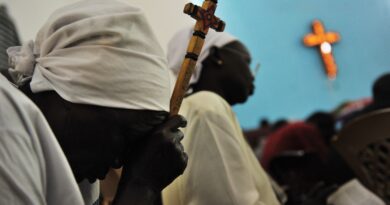Tensions Over Crude Oil: Cross River and Akwa Ibom in a Bitter Battle Over Oil Wells
 Tensions Over Crude Oil: Cross River and Akwa Ibom in a Bitter Battle Over Oil Wells
Tensions Over Crude Oil: Cross River and Akwa Ibom in a Bitter Battle Over Oil Wells
Nigeria’s oil wealth, once hailed as a blessing, has long been a source of conflict. Decades after its discovery, crude oil continues to pit brother against brother, deepening political and territorial rifts. The latest battleground is between Cross River and Akwa Ibom States, two neighbors once united by shared history and culture but now locked in a prolonged dispute over 76 oil wells.
Before the oil boom of the 1970s, Nigeria thrived on agriculture and hard work. Cocoa pyramids dotted the North, palm oil flowed from the South, and the naira stood strong against global currencies. The discovery of crude oil changed everything. Petrodollars poured in, fueling corruption, indolence and reckless spending. Communities that once thrived on enterprise turned into centers of unrest. Militancy, kidnappings and environmental degradation became the new order. Oil, meant to bring prosperity, instead sowed discord.
The conflict between Cross River and Akwa Ibom is rooted in historical territorial changes and a long-running legal tussle over maritime boundaries. The 2002 ruling by the International Court of Justice (ICJ), which ceded the Bakassi Peninsula to Cameroon, stripped Cross River of its coastal status. Without a maritime boundary, the state lost legal rights to offshore oil wells under Nigerian law.
In an attempt to ease tensions, former President Olusegun Obasanjo’s administration allocated 76 oil wells to Akwa Ibom and 14 to Cross River. But Cross River rejected the arrangement, claiming unfair treatment, and took the matter to court. The Supreme Court dismissed the suit in 2005, ruling that only Akwa Ibom had the legal standing to benefit from offshore resources. Cross River had ceased to be a littoral state.
ALSO READ: Afghan Christians in Tajikistan Face Deportation
Despite that ruling, Cross River launched another legal challenge in 2010, contesting ownership and revenue rights over the oil wells. Again, in 2012, the Supreme Court reaffirmed its earlier decision, declaring Cross River ineligible to claim the wells. Still, the dispute lingers.
Akwa Ibom officials accuse Cross River of refusing to accept the finality of the court’s verdict. State Attorney General, Uko Udom (SAN), said Cross River has resorted to “media blackmail” to stir public sympathy, despite losing two major court cases. He recalled that Akwa Ibom had attempted a peace settlement in 2006, even offering N250 million monthly from its derivation revenue, but Cross River rejected the proposal.
Today, revenue from the disputed wells remains in escrow, awaiting a lasting political resolution. The presidency has urged both states to pursue dialogue. Akwa Ibom insists that while it is open to negotiations, its constitutionally affirmed rights cannot be sacrificed. Udom has suggested that the Federal Government can assist Cross River through ecological funds and development support, without depriving Akwa Ibom of its entitlements.
The rift between these two states is more than a legal battle. It reflects a broader Nigerian tragedy an oil-rich nation where resources fuel division rather than development. Until justice and equity replace greed and political rivalry, the same crude that was meant to lift the nation will keep tearing its people apart.
CONTENT CREDIT: BLESSING DADA
IMAGE CREDIT: GOOGLESEARCH.COM



